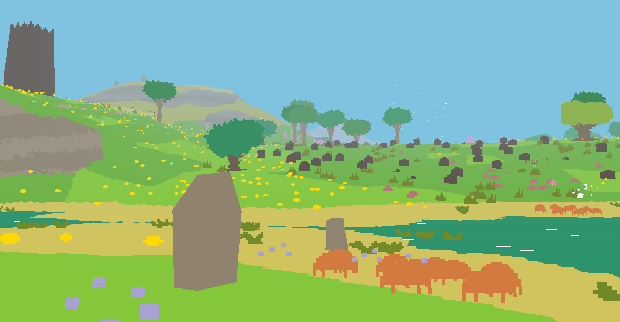Article by Matt S.
To date we’ve seen a lot of these ‘walking simulators’ focus in on a narrative experience. From Everybody’s Gone to the Rapture through Layers of Fear, Dear Esther and Gone Home, the primary goal of the developer has typically been to pass a specific story on to the player. If they end up derided as ‘non-games’, it’s because the experience of them, in the eyes of many, is closer to that of reading a book (as though reading a book is some kind of punishment), in which your own role as the player is largely passive; you’re the recipient of a linear experience as directed by the developer.
I’m not going to get into that debate here, but irrespective of where you stand on these kinds of games, there’s one particularly interesting example of this “walking simulator” genre that deserves attention: Proteus. It’s worth taking a look at because Proteus isn’t about the narrative at all. There’s an element of player-driven experiential narrative based on how you go about exploring one of Proteus’ randomly-generated islands, of course (which applies to every non-game from Tetris through Minecraft anyway), and as no two experiences being the same, the journey itself becomes a narrative. In that way it’s a game with a narrative that’s deeply personal to the individual, but that’s not the focus of Proteus at all.










